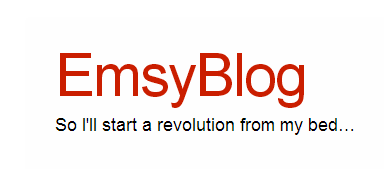While I was away, I read this great piece by Emsy about ‘disability inspiration porn’ and the difference between how people perceive someone they’ve always known to be disabled, and someone who has become so. She asks, how do we go from being “well” to “not well” – both in how we see ourselves, and how other see us?
This is my situation too so I felt compelled to reply. A couple of days ago I wrote about about being asked if my cane was “necessary or aesthetic.” I don’t usually get strangers saying this so directly – but I see it in their eyes all the time. I don’t look sick. I think I probably did when things were really bad, last year when I was barely eating and couldn’t hold myself up. But I manage a pretty good pace with the cane these days. Some days. Ok, I’m pretty much an annoying side-walk dawdler, but you get the point.
I think I could split my friends about 50/50, between the ones who knew me when I was healthy, and the ones I’ve made since I got sick.
As Emsy says, the ones who’ve always known you as healthy can have trouble seeing you as ‘disabled.’ They can’t quite reconcile the two images. They’re not sure how they’re supposed to interact with you. The ones who see you as ‘disabled’ might have trouble if and when you become healthy. This is not personal, it’s about how we see and define disability as a whole.
Yesterday, Public Address launched a new blog Access, which is devoted entirely to discussions around disability. I’m really thrilled about this. My friend Sacha Dylan has kicked it off with this article – What disability is. I gotta say, and yes I’m biased as all get out – he knocks it out of the park.
“Disability is what happens when your needs don’t match the world as it is right now. It’s that simple, and that complex.
“Disability combines personal experience and social process. It is the interaction between how the world functions and how people function.
“It’s way too easy to focus only on the individual, rather than what surrounds them, constrains them, enables them.
When congratulating a disabled person for going for a walk, working, getting their own shopping – you’re not actually congratulating them for ‘overcoming their disability’. You’re congratulating them for overcoming the barriers to these activities that are thrown up by the society we live in.
Emsy talks about ‘classing yourself’ as ‘sick’ or ‘disabled.’ I felt a kindred spirit when I read that. I had been sick for at least six months, had been in hospital, had quit work – and still I struggled to class myself as ‘sick.’ ‘Sick’ sounds temporary. ‘Chronic illness’ sounded so serious and… well, chronic. Permanent. I got comfortable with it, but it took a while. Then – ‘disabled.’ I was disabled from the moment I became sick, but I didn’t start using that word until I got my cane. It didn’t feel legitimate, and I didn’t want to appropriate the term. I didn’t realise it was perfectly right and perfectly acceptable.
It’s the little things that remind me how much we live in a society that favours the able-bodied. Today, I got the bus into town. It’s pretty hard clambering on, to begin with (Nelson isn’t big enough to have those ‘kneeling’ buses). Once I sat down, I looked around for the ‘stop bus’ button, so I’d know where to find it when I needed to get off. And – oops – there it was. Above the window. Probably four feet above my head, sitting down. So… I guess they expect you to be able to stand up and reach it? I mean, I can. I did. But it hurts. Stretching like that hurts. This is a tiny moan, in the scheme of things – I’m just trying to point out that, before I got sick, I wouldn’t have even noticed such a thing. Now, it’s just another detail that makes my disabled life more difficult.
I’m lucky in that, I have the hope that this won’t always be my life. My disability shouldn’t be permanent. So for me, it’s not only, how do I go from being not sick to sick… but how do I go back again? How will people interact with me when I appear to be healthy once more? How will I feel about myself?
I’ll finish with Sacha’s words.
Rather than trying to cure or ‘fix’ each person, let’s just make sure the settings we share genuinely work for everyone. Then we can all live to our potential and play our part in our families, our society and our economy. Our world faces some great challenges that require cunning, cooperation and tenacity to overcome. Disabled people offer all of that, hard-won from daily experience. We are also your neighbours, your family, your future. Fellow citizens. Fellow humans.
What we each bring is worth adjusting for… without challenge, without pity and without begging.


